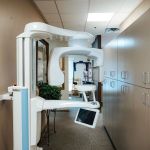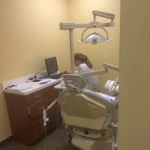Best Way to Fix a Cracked Tooth: Essential Solutions and Treatments
- 1. Understanding a Cracked Tooth
- 2. Causes of a Cracked Tooth
- 3. Symptoms of Cracked Teeth
- 4. Best Treatments for a Cracked Tooth
- 5. How to Prevent Cracked Teeth
- 6. When to See a Dentist
1. Understanding a Cracked Tooth
A cracked tooth is a common dental issue that can happen for a variety of reasons. It may result from trauma, like biting into something hard or grinding teeth, or from normal wear and tear over time. Although it might not always be immediately painful, a cracked tooth can lead to serious dental problems if left untreated. Knowing the best way to fix a cracked tooth can help you avoid further complications and maintain your oral health.
Cracked teeth are classified into several types, from minor surface cracks to more severe fractures that can reach the tooth’s pulp. In many cases, a cracked tooth may cause discomfort or sensitivity when eating or drinking, especially with hot, cold, or sweet foods. This article will provide a comprehensive guide on how to identify, treat, and prevent cracked teeth, ensuring you understand the best way to fix this issue and protect your smile.
2. Causes of a Cracked Tooth
Cracked teeth can occur due to several causes, and understanding the factors behind tooth fractures can help you avoid them in the future. Below are the most common causes of a cracked tooth:
- Trauma or Injury: Accidents such as falling, sports-related injuries, or any direct blow to the mouth can result in a cracked tooth. These accidents can cause visible fractures or stress cracks that may not show symptoms right away.
- Biting Hard Foods: Biting down on hard foods like nuts, ice, or hard candies can cause teeth to crack, especially if your teeth are already weakened by cavities or previous dental work.
- Teeth Grinding: Grinding or clenching your teeth, especially while sleeping, can create stress and small fractures over time, leading to a cracked tooth.
- Age and Wear: As you age, your teeth naturally weaken due to years of chewing, making them more susceptible to cracks. Old dental work, such as fillings or crowns, can also increase the risk of a cracked tooth.
By understanding these common causes, you can take steps to reduce your risk of experiencing a cracked tooth and preserve your dental health.
3. Symptoms of Cracked Teeth
A cracked tooth doesn’t always present obvious symptoms, but there are signs that can help you identify when you might have a crack in your tooth. It’s important to be aware of the following common symptoms:
- Sensitivity: One of the most common symptoms of a cracked tooth is increased sensitivity to hot, cold, or sweet foods. You may feel a sharp pain or discomfort when you eat or drink certain things.
- Sharp Pain: Some people experience a sharp pain when chewing or biting down, especially if the crack is deep and affects the nerve inside the tooth.
- Visible Crack: In some cases, you may be able to see a visible crack or fracture in your tooth. However, many cracks are not visible and may require X-rays or a dental exam to detect.
- Swelling and Gum Tenderness: In more severe cases, a cracked tooth may lead to swelling or tenderness in the gums around the affected tooth, indicating an infection or damage to the pulp.
If you experience any of these symptoms, it’s essential to consult with a dentist as soon as possible to prevent further damage and determine the best course of action for treatment.
4. Best Treatments for a Cracked Tooth
When it comes to treating a cracked tooth, the best approach depends on the severity of the crack and the overall health of the tooth. Below are the most common treatments used to repair a cracked tooth:
- Bonding: For minor cracks, dental bonding is a common solution. The dentist uses a composite resin to fill in the crack, restoring the tooth’s shape and function. This treatment is quick and effective for small fractures.
- Crowns: If the crack is more severe, your dentist may recommend a dental crown to cover the tooth and provide added strength. Crowns are durable and can prevent further damage to the tooth.
- Root Canal Therapy: In cases where the crack has reached the tooth’s pulp, causing infection or severe pain, a root canal may be necessary to remove the damaged pulp. After the root canal, a crown is typically placed to protect the tooth.
- Extraction: In some cases, if the tooth is too damaged and cannot be repaired, the dentist may recommend extraction. If this happens, your dentist may discuss options for tooth replacement, such as dental implants or bridges.
It's important to seek professional dental care immediately if you suspect a cracked tooth. Early intervention can help preserve the tooth and prevent further complications.
5. How to Prevent Cracked Teeth
While some causes of cracked teeth are unavoidable, there are several steps you can take to reduce your risk and prevent future fractures. Here are some prevention tips:
- Wear a Mouthguard: If you grind your teeth at night or participate in sports, wearing a mouthguard can protect your teeth from trauma and grinding.
- Avoid Biting Hard Objects: Avoid biting hard objects like ice, hard candies, or pens, as these can cause cracks or fractures in your teeth.
- Regular Dental Checkups: Regular visits to the dentist for checkups and cleanings can help detect early signs of wear, cracks, or other dental issues, allowing for early intervention.
- Good Oral Hygiene: Maintaining good oral hygiene by brushing and flossing regularly helps strengthen your teeth and prevent cavities, which can contribute to cracks in the enamel.
By taking these simple steps, you can help preserve your teeth and avoid the need for costly repairs in the future.
6. When to See a Dentist
If you suspect that you have a cracked tooth, it’s crucial to visit a dentist as soon as possible. Delaying treatment can lead to more severe pain, infection, and even tooth loss. If you experience any of the symptoms listed earlier, such as sensitivity, sharp pain, or visible cracks, make an appointment with your dentist immediately.
In some cases, the crack may be too small to notice, but a dentist can detect it during a routine checkup and recommend the appropriate treatment. Early intervention can help save your tooth and prevent the need for more invasive treatments down the line.
Don’t wait for the pain to worsen—contact your dentist today if you think you may have a cracked tooth!







 Great Smiles Dental Care4.0 (472 review)
Great Smiles Dental Care4.0 (472 review) Genesis Dental of Taylorsville4.0 (842 review)
Genesis Dental of Taylorsville4.0 (842 review) Downtown Dental Center4.0 (114 review)
Downtown Dental Center4.0 (114 review) Advanced Dental Implant Center "Comfort Dental"4.0 (201 review)
Advanced Dental Implant Center "Comfort Dental"4.0 (201 review) Hall Orthodontics5.0 (150 review)
Hall Orthodontics5.0 (150 review) Bright Now! Dental & Orthodontics3.0 (453 review)
Bright Now! Dental & Orthodontics3.0 (453 review) The Importance of Oral Health Education During Pregnancy for a Healthy Pregnancy
The Importance of Oral Health Education During Pregnancy for a Healthy Pregnancy Best Tips for Brushing Your Teeth Properly for Healthy Gums: Essential Techniques for Oral Health
Best Tips for Brushing Your Teeth Properly for Healthy Gums: Essential Techniques for Oral Health Why Skipping Dental Checkups Can Lead to Bigger Oral Health Problems
Why Skipping Dental Checkups Can Lead to Bigger Oral Health Problems Advantages of Porcelain Dental Restorations
Advantages of Porcelain Dental Restorations How Can Diabetes Cause Tooth and Gum Problems? Preventing and Managing Oral Health Issues
How Can Diabetes Cause Tooth and Gum Problems? Preventing and Managing Oral Health Issues Healthy Habits for Promoting Good Oral Health and Hygiene: Tips for a Healthy Smile
Healthy Habits for Promoting Good Oral Health and Hygiene: Tips for a Healthy Smile